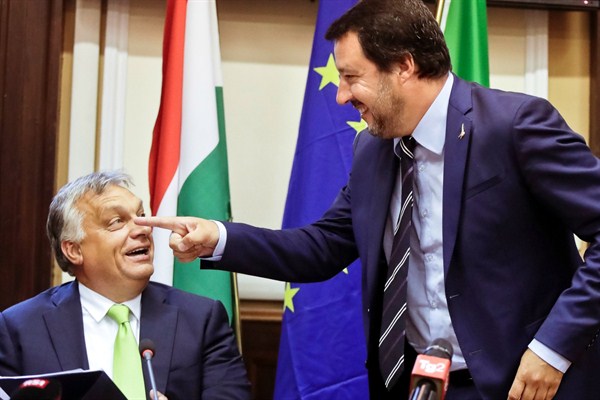Could next week’s European Parliament elections lead to a grand realignment of the continent’s politics, with the populist right wielding unprecedented influence? Hungary’s pugnacious and controversial prime minister, Viktor Orban, certainly hopes so. Poland’s de facto leader, Jaroslaw Kaczynski, the head of the ruling, arch-conservative Law and Justice party, PiS, is also eyeing the leadership of an invigorated right. So too Italy’s deputy prime minister, Matteo Salvini, the figurehead for a potential new bloc of hard-right populist parties and governments opposed to immigration and aiming to reconstitute European politics.
But even if they all do as well as predicted next week, with far-right, populist and other euroskeptic parties projected to win around a quarter to a third of the seats in the European Parliament, the question remains: Can the disparate forces of Europe’s populist right coalesce into a coherent whole and put their plans into action?
In the run-up to the vote, Orban has heaped praise on Salvini, whom he recently described as a “hero” and “the most important person in Europe today.” At a joint press conference in Budapest with Salvini in early May, Orban said that “Europe’s borders must be defended against the migrant invasion.” Salvini, who visited Hungary’s southern border fence with Orban, pledged that he and the Hungarian leader would work together “if there are any legal disputes with Brussels,” and said that he hoped a new nationalist bloc would help forge “a new history for Europe and the peoples of Europe.”

